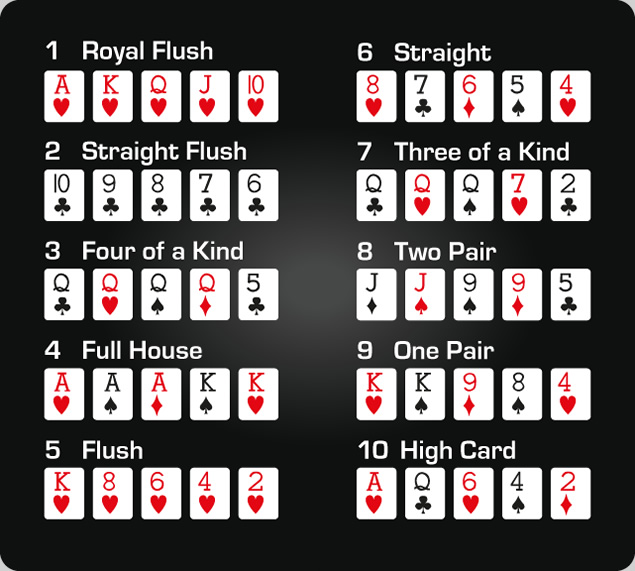
Poker is a card game where players try to win by forming the best 5-card poker hand. It is a card game that can be played with 2 or more people, but is generally played in a group of four to six people. There are several different poker variants, but all have the same basic rules. In each deal there are one or more betting intervals (according to the poker variant being played). The player that is first to act in each betting round must place chips into the pot, and may also raise or fold.
Poker can be very addictive and you can find yourself playing it for hours on end. In order to avoid this you should play only with money that you can afford to lose, and make decisions based on rationality. You should also pick the stakes that are appropriate for your skill level and stick to them. This way you will avoid getting discouraged and will be able to make tough decisions throughout your session.
There are many strategies and tactics that you can use to improve your game, but the most important thing is to observe the action at the table. You will learn a lot about your opponents by watching them and studying their actions. This will help you to identify their mistakes and to exploit them.
Another thing that you need to do is to practice your quick instincts. This is an essential skill for successful poker play, and it can be developed by observing the actions of experienced players. Try to imagine how you would react in their situation, and then practice putting yourself in their shoes.
Observe the other players at your table and pay attention to their betting patterns. This will give you an idea of their range of hands and will allow you to adjust your own range accordingly. For example, if an opponent calls pre-flop with a weak hand, it is likely that they are trying to trap you and are not expecting you to bet. In this case, you should raise and bet with your strong value hands in order to maximize their value.
The other thing that you should do is to exercise your pot control. This means that you should bet big when you have a good hand, and call small with mediocre or drawing hands. This will allow you to keep the pot size under control and will make it easier to extract value on later streets.
The most important thing to remember when playing poker is that it’s a game of chance, but you can increase your chances of winning by choosing the right games and limits. In addition, you should only play against players that you have a significant edge over. Otherwise, you’ll lose your money faster than you think. And don’t forget to have fun! If you’re not having fun, it’s time to take a break. There are plenty of other card games that you can enjoy without the pressure of having to make a profit.